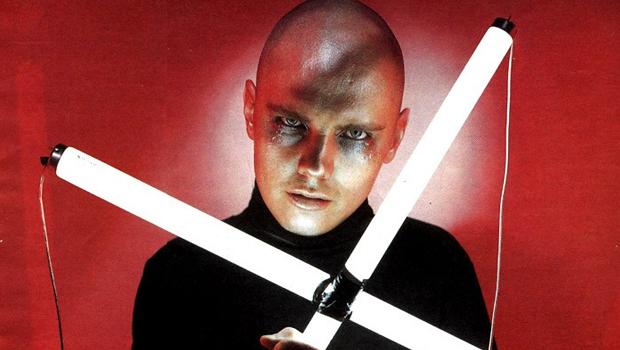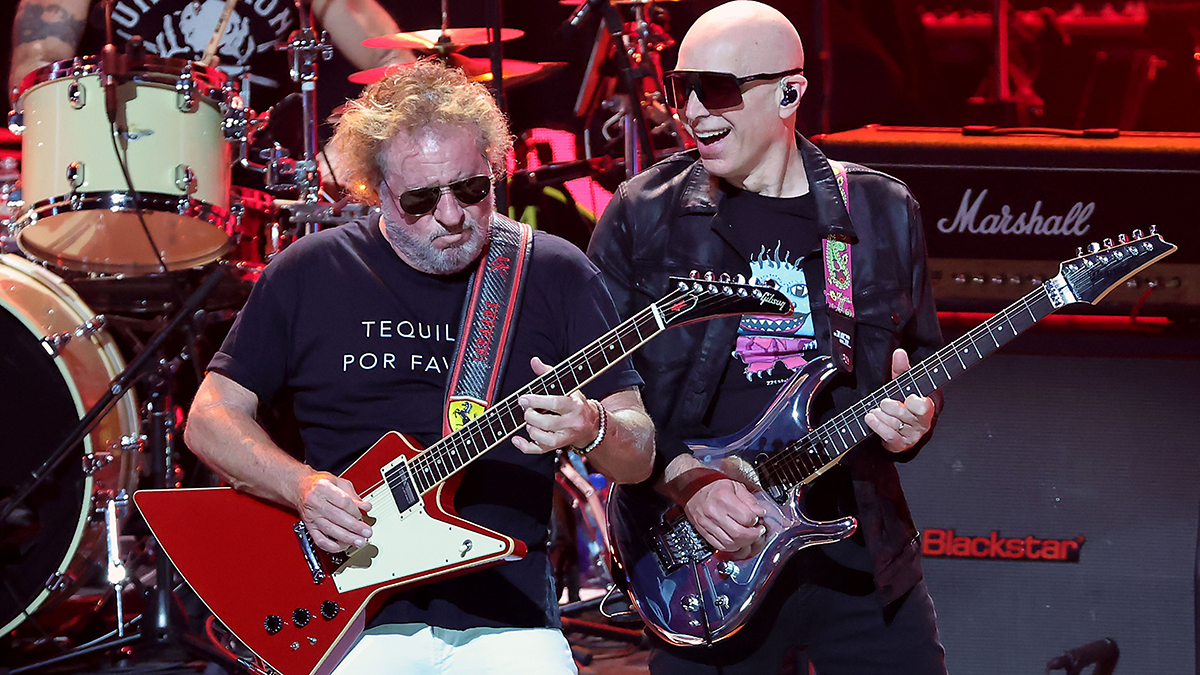Guitar Geek U.S.A.: The Elements of Tone

The following is taken from the Guitar World archives.
Your tone has a lot to do with how people react to your playing and to your music as a whole. It is as important as the quality of a singer's voice or the accent with which he or she delivers a particular lyric. Many guitarists fail to realize that every aspect of the equipment they use affects their sound, and therefore how they are perceived as an artist. The type of guitar — the wood it's made of, whether it has a rosewood or maple fretboard--the amp, the strings, the pick, the pickups, the effects and the length of your cord all play important roles.
With so many possible gear combinations to chose from, there is only one way to find sounds that appeal to you: experimentation. Only experimentation will show you that slight variations in your basic set-up will yield drastically different, and often welcome, results.
Listed below are the essential ingredients that combine to create a guitar sound.
GUITARS
Most electric guitars are based on basic designs created by Gibson and Fender. Few guitarists seem to feel equally comfortable with both designs. Gibsons produce a fat, round sound, while Fenders have a more cutting tone. I had never played a Fender Stratocaster until the day that I bought one, but the second I picked it up, I immediately felt, "This is it. This is the sound I've always been looking for." I wished that I had done more experimenting with different guitars, because I would have started playing a Strat much earlier. You really need to try lots of different guitars to find the right one. Avoid getting fixated on one particular instrument simply because one of your heroes plays one.
Once you find a guitar design that you're comfortable with, don't just settle on the first instrument of its type that you come across. Mass-produced guitars are often inconsistent. If you walk into a music store and play five guitars of the same model, one will probably be much better than the others, so play as many as possible. Also, be open to the possibility of buying a used instrument, or even an obscure, no-name guitar, if it's the one that really feels and sounds right to you.
Get The Pick Newsletter
All the latest guitar news, interviews, lessons, reviews, deals and more, direct to your inbox!
PICKUPS
It's very hard to determine which pickups are best for you, because it's unlikely that you can afford to go out and buy five different sets and try them all in your guitar. A good alternative is to bring a guitar you like to a music store, then compare its sound with similar guitars that are fitted with different pickups. I did this with my Strat, which is how I determined that I liked the sound of Lace Sensor pickups. In essence, I'd found the right blend between the best of both worlds; the cut of a Strat and the bottom end of an SG. They're right at home producing hugely overdriven sounds without generating a shrill top-end. After I tried a few guitars with Lace Sensor pickups, I decided to try them in my guitar, and they worked out well.
AMPS
Experimenting with different amps is one of the hardest things for a guitarist to do. It's virtually impossible to walk into a music store and crank up one amp, let alone a bunch of them. I recommend that young guitarists with a lack of amp experience buy rack-mountable amps and preamps because their sounds are generally very consistent and easy to tailor to different applications. I used an ADA MP-1 preamp for all of "Gish." I'd written the songs on that unit, and I couldn't imagine them being played any other way.
If you end up with a tube amp, make sure the tubes are working properly. Also, if possible, experiment with different power tubes. I'm a huge fan of using KT-88's in my Marshall. Most people prefer EL-34's, but I hate them. The "Gish"/"Siamese Dream" guitar sound has so much to do with KT-88's, which add a round, fat bottom to my sound.
Before buying any amp, be nosey. Talk to as many guitarists as you can, get different opinions and see what other people like and don't like. I've always done that, and it's always been helpful.
PEDALS
As fun, inexpensive and radical-sounding as pedals can be, their presence in your signal path will usually decrease the overall quality of your sound. If you can, run your effects through your amp's effects loop instead of sticking them in-line, where they will really wreak havoc on your tone.
Sometimes, though, a nice lo-fi pedal is just what you need. When we did "Siamese Dream," I developed a technique of plugging my Big Muff pedal into the low sensitivity input of a 100-watt Marshall JCM 800, with the master volume on full and the preamp volume barely on at all. To me, the Electro-Harmonix Big Muff produces the ultimate super-gain VROOOM sound. Live, however, a Big Muff doesn't give you enough definition. I just keep experimenting with different combinations of pedals--and guitars--to get the ideal sound.
Some of the other distortion boxes I use are the Fender Blender, which generates the most saturated, harmonic-laden sound you can imagine. When it's turned all the way up, it sounds like the end of the world! I also have a wah/fuzz that looks as if it must have been made by Uni-Vibe. Finally, the nasal, squeezed-up lead tone that I use so often--as on "Pissant," for example--I ripped off from Michael Schenker! I used an Electro-Harmonix Micro-Synthesizer and some unknown fuzz pedal, plus an MXR Phase 100.
PICKS, STRINGS & PATCH CHORDS
Most people seem to be unaware of how much their strings affect their sound. I find that the guitar sounds much better when it has relatively new strings. When the strings are brand new, however, they usually sound too bright for me, so I play on them for an hour or so before a show. When Smashing Pumpkins are on tour, we have to change our strings for every show. The sweat from just one gig will completely change their sound for the worse. Old strings lose all of their clarity and brightness, and, worse, will not intonate correctly, so your guitar will be out of tune on different parts of the neck. When this occurs, the strings must be changed--don't just wait until they break!
Your string gauge also has a drastic effect on your tone. If you play very heavy, metal-type riffs, you should probably go with a set that's slightly heavier than a standard rock gauge--.052 to .010, for example. For more all-purpose rock guitar styles that involve a lot of soloing and string bending, I recommend .009-.042, which I use.
Even those guitarists who change their strings regularly often neglect to put sufficient effort into their pick selection, perhaps because it takes a great deal of experimentation to find the perfect gauge. Even though we're talking tenths of millimeters here, the effect a given pick will have on your playing is enormous. Texture is also an important consideration: some picks will slip out of your hand more easily than others. Personally, I prefer a heavy, thin pick because it provides me with the right combination of control and power to create the gain I want. You will actually play better when you find the right pick, so take your time and explore what the market has to offer.
As far as patch chords are concerned, I've often heard that your signal loses 1db of gain for every 10 feet of cable you use. For years, I used a 30-foot cord when I played live, and couldn't understand why my guitar didn't sound as good as when I played at home, where I used a much shorter cable. The loss of db created by a long cord can make a huge difference in your sound. Again, you need to experiment with different lengths and types of cords, and find what works best for you.
Searching for the perfect gear recipe to suit your tastes is an endless, evolving process. If you buy a better amp, you may notice how shitty your guitar is, and vice versa. I've already spent thousands of dollars in pursuit of the perfect guitar sound, which I'm sure I'll never completely capture. But when I come really close, it's inspiring, and it makes me want to play all day.









